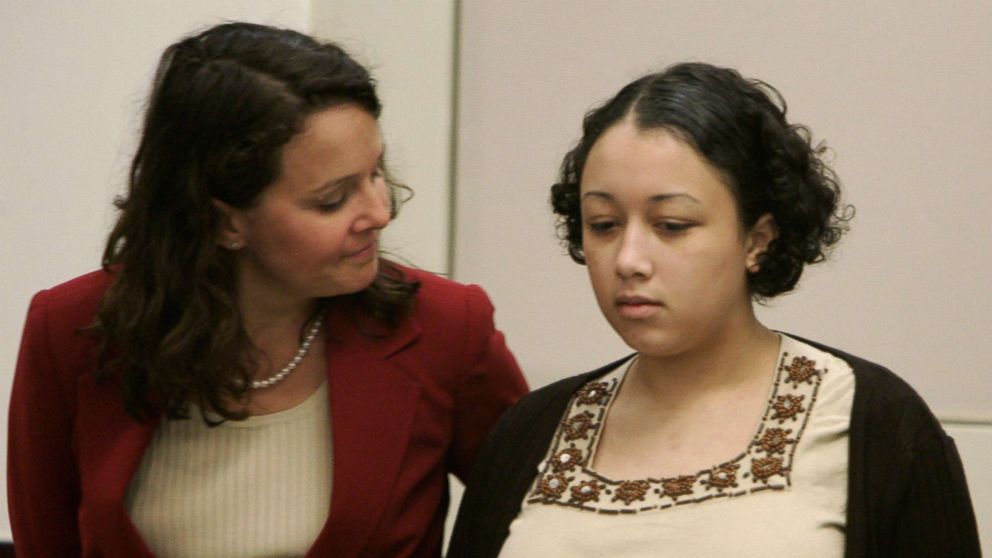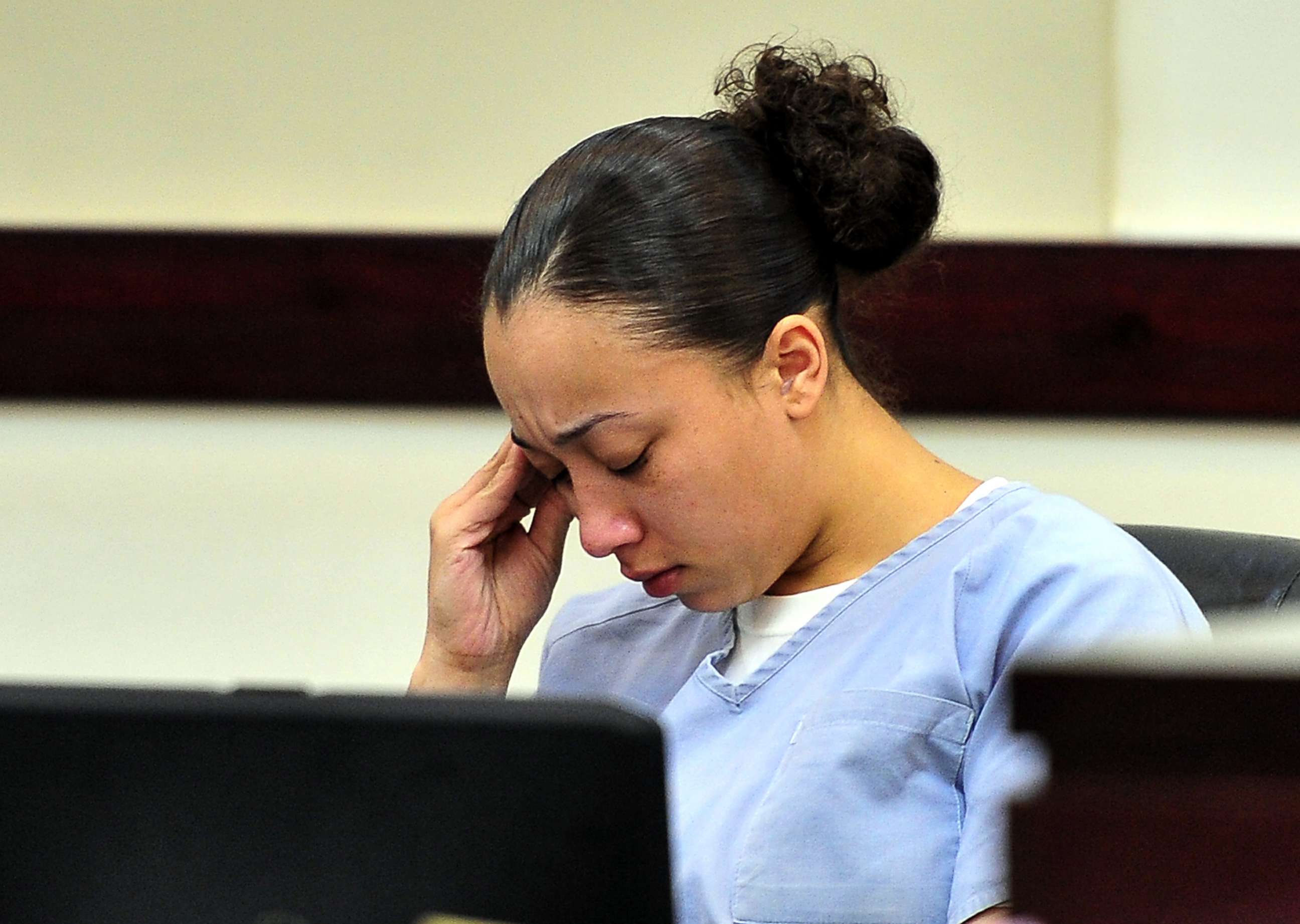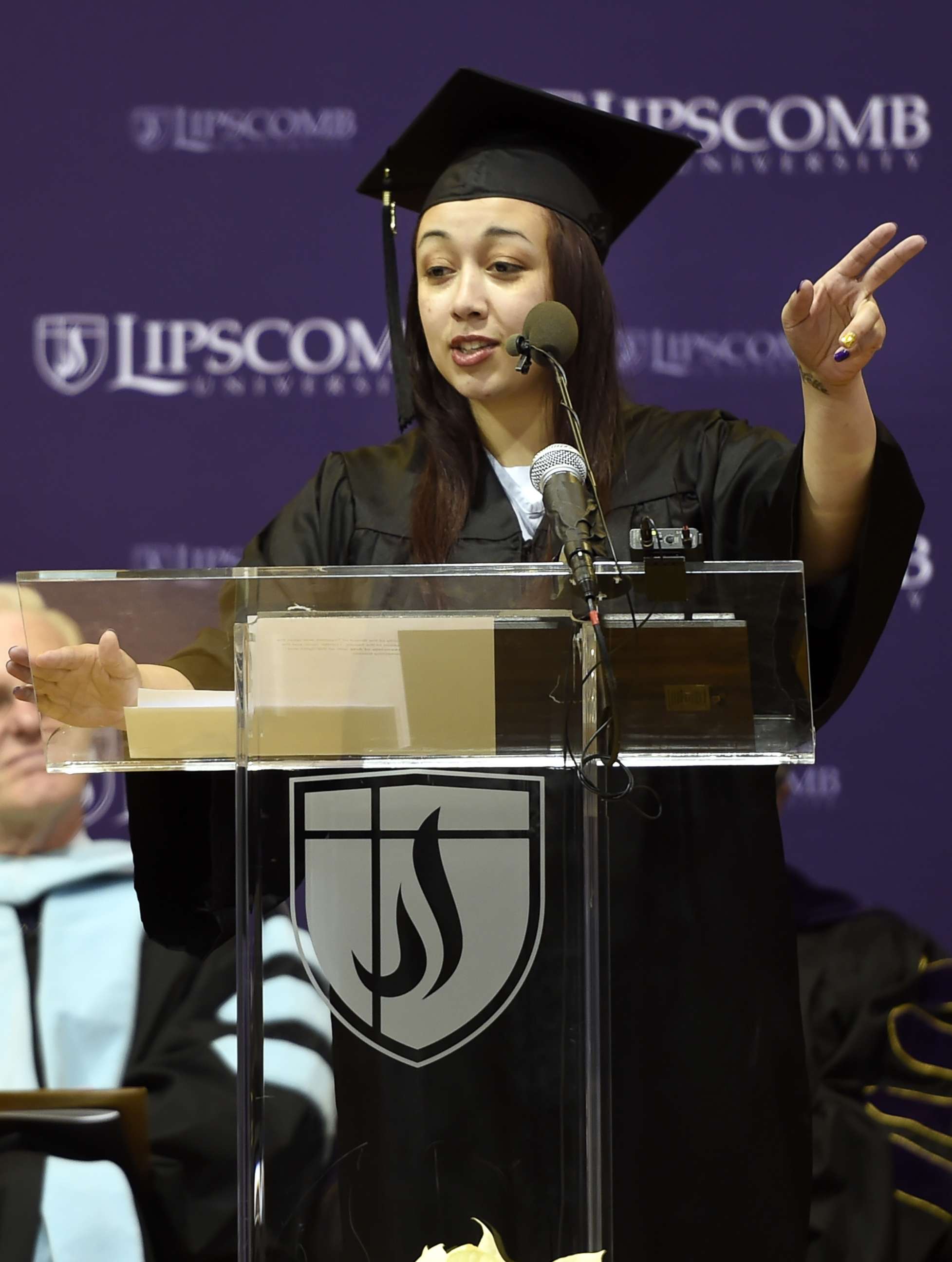Cyntoia Brown's case back in the spotlight after Rihanna, Kim Kardashian West speak out

— -- When Cyntoia Brown was 16, she shot and killed a man who had allegedly hired her for sex. She was tried as an adult, convicted of first-degree murder and given a mandatory life sentence with the possibility of parole only after 51 years.
Now, her case is back in the spotlight thanks to social media posts by celebrities calling for her release. Advocates say they are hoping the renewed attention helps them argue that Brown should be eligible for parole sooner.
"We have been very, very surprised. The entire team, as well as Cyntoia, obviously had no idea that this was going to happen or why it happened, and she is very appreciative of the support from everyone," Charles Bone, Brown's attorney, told ABC News. "It is about her, but it's also about the issues, and I think that's what she feels strongly about. The issues of sex trafficking and sex slavery and juvenile justice all need a lot of attention throughout the world but especially here in Tennessee."

Brown was convicted of first-degree murder in 2006 after she shot and killed Johnny Michael Allen, a 43-year-old man who had allegedly hired her for sex. She was forced into sex with other men by 24-year-old Garion "Cut Throat" McGlothen and had experienced physical and sexual abuse, according to an amended petition for a writ of habeas corpus filed by her attorneys in 2015. McGlothen died in 2005.
Brown has already spent more than a decade behind bars, but Bone said the renewed attention comes as he is preparing to argue her case before the 6th Circuit Court of Appeals in early 2018.
"The court will be asked by our team to consider the constitutionality of the 51-year sentence for a child," Bone said. "That's been the issue we have felt for all these years needs to be considered by the courts. We haven't been successful yet, but we are hopeful the 6th Circuit will consider our appeal on a favorable basis."
Marsha Levick, the deputy director and chief counsel of the nonprofit Juvenile Law Center, said Brown is far from the only juvenile offender to have received a harsh sentence.
"My hope for cases like Cyntoia's is to just literally try to change the paradigm," Levick told ABC News. "When someone is a child, when someone has had the experiences Cyntoia had, our system needs to be able to reflect that and to recognize that. Otherwise, I think we lose our sense of humanity."

Brown was diagnosed with Fetal Alcohol Syndrome Disorder in 2012, according to her attorney. At the time she shot Allen, "her exposure to alcohol poisoning in utero left her with a damaged brain which caused her to experience the world through the mind of a 10-year-old child," according to the habeas corpus petition. She had also been abandoned and later kidnapped by her biological mother, suffered physical and sexual abuse and was forced "into a life of prostitution," the writ of habeas corpus states. In 2009, the Supreme Court of Tennessee upheld her conviction.
But two U.S. Supreme Court decisions in 2010 and 2012 have changed how juveniles can be sentenced. In 2010, the court prohibited sentencing juveniles to life without the possibility of parole for non-homicide offenses. In 2012, the Supreme Court ruled that 8th amendment prohibits sentencing juvenile offenders to life in prison without the possibility of parole for any offense.
Those two decisions are among the reasons Bone believes Brown's case should be reconsidered.
But Jeff Burks, who prosecuted Brown, told FOX17 in Nashville last week that he disagrees.
"There has been a group of people who have wanted to make Ms. Brown a victim and a celebrity since this happened," Burks wrote to Fox 17 News. "She was not 'trafficked' nor was she a 'sex slave.' It's not fair to the victim and his family that the other side of this case is so seldom heard."
Burks did not immediately respond to ABC News’ request for comment.
Although she has been incarcerated since her arrest in August 2004, her case first received widespread attention after the release of a 2010 documentary, "Me Facing Life: The Cyntoia Brown Story." Bone said he began representing her pro-bono the same year after seeing the documentary.
Her story is now back in the spotlight after singer Rihanna posted about Brown's case on Instagram earlier this week and other celebrities followed suit, including Kim Kardashian West, rapper TI and basketball player LeBron James.
Kardashian West tweeted that she would ask her legal team to look into Brown's case.
A representative for Kardashian West confirmed to ABC News she had asked her lawyers to reach out to Brown's attorneys.
In December 2015, Brown earned her associate's degree from Lipscomb University while incarcerated, her attorney said.
Making her eligible for parole sooner "is not about letting people walk away, or not holding someone responsible for the consequences of their actions," Levick said, but rather about making her sentence "proportionate" to her age and the context in which the crime was committed.
"She comes out at 67, she will have lost untold opportunities to engage in life, to potentially have a family, be married, to continue her education, to give back to her community, to have normal social interactions, to develop friendships," Levick said.
Levick said that there are "scores" of people serving decades-long sentences for crimes they committed as teenagers that also need to be examined.
"At the end of the day, the U.S. is an incredibly punitive country. For the most part, no sentence is too long," Levick said. "That filters down, unfortunately, to kids who are tried in the adult criminal justice system, and who are, for the most part, subject to the same kinds of sentencing options -- except for death -- that adults are."
"If her case pushes this conversation to the front page, that's a good thing. Because it's a conversation that we need to have," Levick added.
A representative for Rihanna had not responded to ABC News' request for comment at the time of publication.



